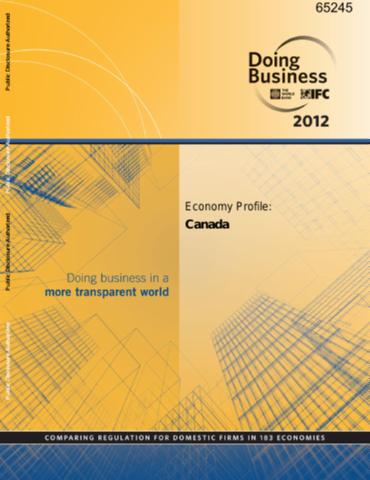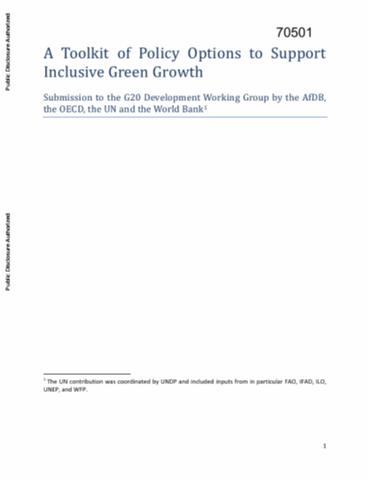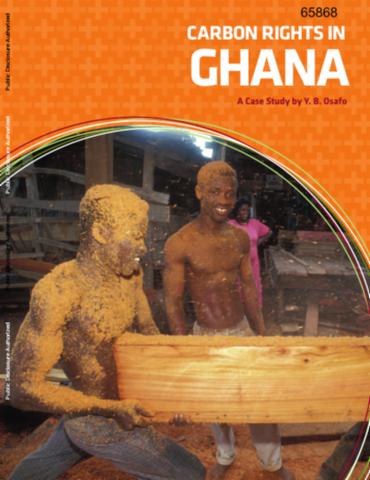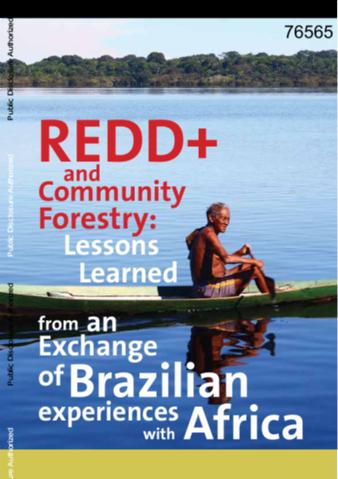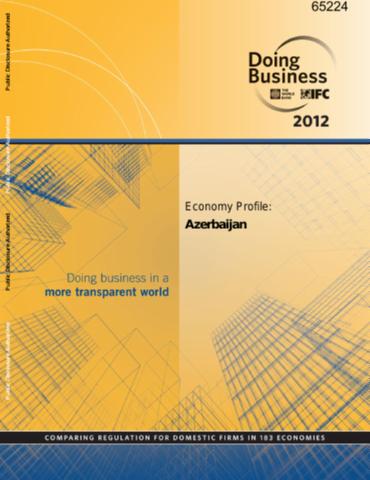The World Bank is a vital source of financial and technical assistance to developing countries around the world. We are not a bank in the ordinary sense but a unique partnership to reduce poverty and support development. The World Bank Group has two ambitious goals: End extreme poverty within a generation and boost shared prosperity.
- To end extreme poverty, the Bank's goal is to decrease the percentage of people living on less than $1.25 a day to no more than 3% by 2030.
- To promote shared prosperity, the goal is to promote income growth of the bottom 40% of the population in each country.
The World Bank Group comprises five institutions managed by their member countries.
The World Bank Group and Land: Working to protect the rights of existing land users and to help secure benefits for smallholder farmers
The World Bank (IBRD and IDA) interacts primarily with governments to increase agricultural productivity, strengthen land tenure policies and improve land governance. More than 90% of the World Bank’s agriculture portfolio focuses on the productivity and access to markets by small holder farmers. Ten percent of our projects focus on the governance of land tenure.
Similarly, investments by the International Finance Corporation (IFC), the World Bank Group’s private sector arm, including those in larger scale enterprises, overwhelmingly support smallholder farmers through improved access to finance, inputs and markets, and as direct suppliers. IFC invests in environmentally and socially sustainable private enterprises in all parts of the value chain (inputs such as irrigation and fertilizers, primary production, processing, transport and storage, traders, and risk management facilities including weather/crop insurance, warehouse financing, etc
For more information, visit the World Bank Group and land and food security (https://www.worldbank.org/en/topic/agriculture/brief/land-and-food-security1
Resources
Displaying 2956 - 2960 of 4907Doing Business Economy Profile 2012
Doing Business sheds light on how easy or difficult it is for a local entrepreneur to open and run a small to medium-size business when complying with relevant regulations. It measures and tracks changes in regulations affecting 10 areas in the life cycle of a business: starting a business, dealing with construction permits, getting electricity, registering property, getting credit, protecting investors, paying taxes, trading across borders, enforcing contracts and resolving insolvency.
A Toolkit of Policy Options to Support Inclusive Green Growth
In 2012, the Mexican Presidency of the G20 introduced inclusive green growth as a cross-cutting priority on the G20 development agenda. The second meeting of the G20 Development Working Group (DWG), hosted by the Government of the Republic of Korea, took place in Seoul the 19th and 20th of March 2012. As agreed during the first DWG meeting, this second meeting focused on the priorities for their presidency in the first half of 2012: infrastructure, food security and inclusive green growth (IGG).
Carbon Rights in Ghana
For Ghana's national REDD plus scheme to be viable, the rights to carbon or the emission credits generated must be clearly delineated, and be accompanied by equitable and efficient benefit sharing systems. There are a number of approaches that the State can use to determine whom to vest the right to carbon in. If defined as a natural resource, the state would be vested with the rights. If recognized as an ecosystem service, then the right to the benefits would be vested in the owner of the trees.
REDD+ and Community Forestry
This publication is the result of an initiative to promote an exchange between Brazil and African countries on lessons learned about the role of community forestry as a strategic option to achieve the goals of Reducing Emissions from Deforestation and Forest Degradation (REDD+). The initiative was supported by the World Bank with funding from the Global Environment Facility (GEF), and coordinated by the Amazonas Sustainable Foundation (FAS) with support from the National Forestry Agency International (ONFI).
Doing Business Economy Profile 2012
Doing Business sheds light on how easy or difficult it is for a local entrepreneur to open and run a small to medium-size business when complying with relevant regulations. It measures and tracks changes in regulations affecting 10 areas in the life cycle of a business: starting a business, dealing with construction permits, getting electricity, registering property, getting credit, protecting investors, paying taxes, trading across borders, enforcing contracts and resolving insolvency.






